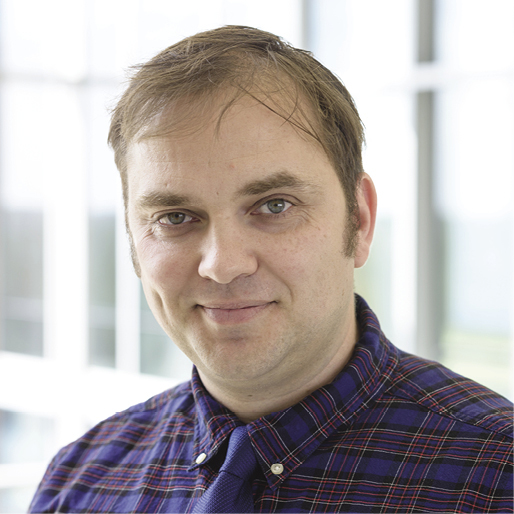Stephan Schmidt, Ph.D.
Professor of Pharmaceutics
College of Pharmacy
2023 Awardee
As a child growing up in East Germany, near the border with West Germany, Stephan Schmidt learned to live within the restrictions of the communist nation. While he reflects fondly on his childhood, it wasn’t until the Iron Curtain fell when he was 11 that he had the freedom to explore the world and expand his education. Schmidt studied at universities in Germany, the Netherlands and the United States on his way to landing his first faculty position at the University of Florida in 2012.
“If someone had told me 35 years ago that I would be a professor in the United States someday, I would have thought you were crazy,” said Schmidt, Ph.D., the Certara Endowed Professor in the College of Pharmacy.
In 2012, Schmidt teamed with Lawrence Lesko, a 20-year veteran of the U.S. Food and Drug Administration, to establish the Center for Pharmacometrics and Systems Pharmacology at the UF Research and Academic Center in Lake Nona. The center embraces interdisciplinary research approaches in quantitative clinical pharmacology to bring new drug therapies to market and houses one of the world’s first academic training programs in the discipline of drug development and regulatory science.
“We are training students and postdoctoral fellows how to use mathematical modeling to bring new and better drugs to market and improve existing treatments,” said Schmidt, who became center director in 2020. “These are highly sought-after skills in the pharmaceutical industry, as medicines become more expensive.”
In an academic career full of noteworthy accomplishments, Schmidt especially values his mentorship role. He has trained 33 postdoctoral fellows, 15 Ph.D. students and three research assistant professors over the past decade. Many trainees have transitioned into successful careers in academia, the pharmaceutical industry and the U.S. Food and Drug Administration.
As a scientist, Schmidt has published nearly 140 peer-reviewed articles, seven book chapters and is co-editor of two textbooks, including one that is considered a staple in the field of pharmacokinetics/pharmacodynamics. He ranks among the top 2% of the most influential scientists in his field according to the 2022 Elsevier Data Repository report. Since 2017, he has received more than $10 million in funding as a principal investigator and has been a co-investigator on nearly a dozen grants.


